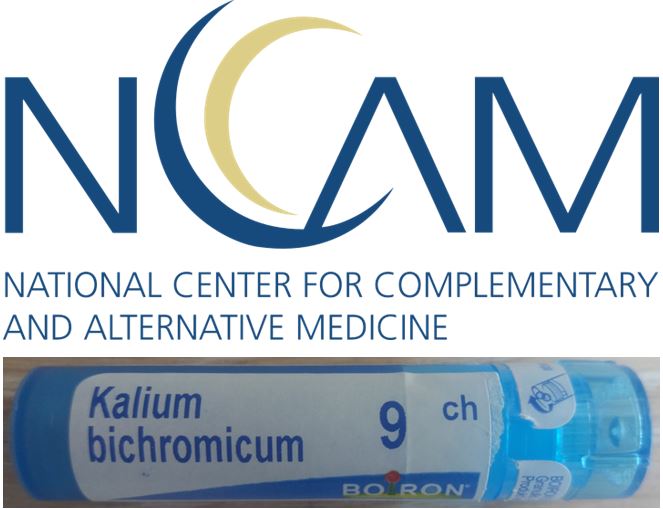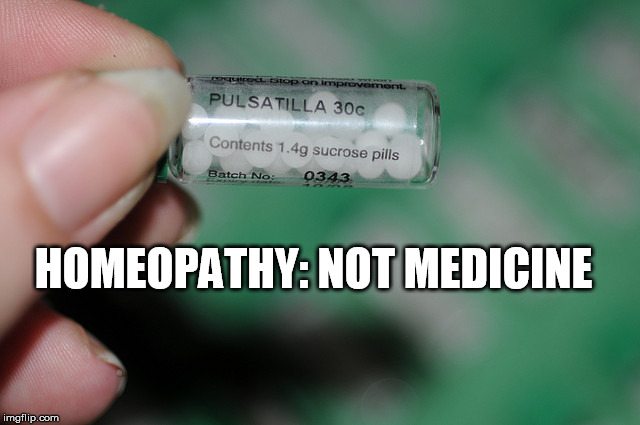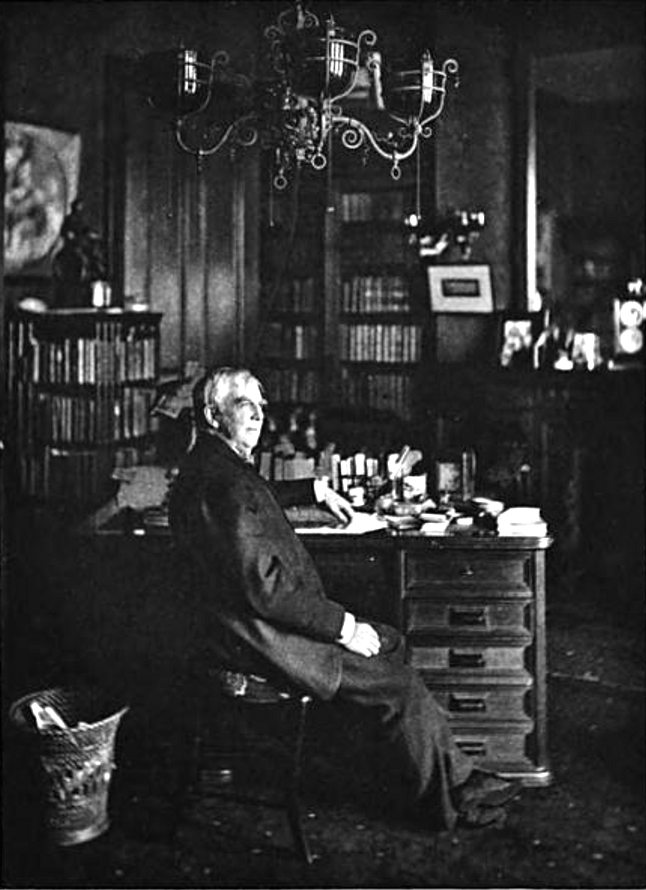Results for: homeopathy
A truly homeopathic defense of homeopathy
I realize that I’ve said it many times before, but it bears repeating. Homeopathy is the perfect quackery. The reason that homeopathy is so perfect as a form of quackery is because it is quite literally nothing. On second thought, I suppose that it’s not exactly nothing. It is, after all, water or whatever other diluent that homeopaths use (usually ethanol). However,...

Getting NCCAM’s money’s worth: Some results of NCCAM-funded studies of homeopathy
As hard as it is to believe, the Science-Based Medicine blog that you’re so eagerly reading is fast approaching its fifth anniversary of existence. The very first post here was a statement of purpose by Steve Novella on January 1, 2008, and my very first post was a somewhat rambling introduction that in retrospect is mildly embarrassing to me. It is what...
Homeopathy’s Recent Woes
Be careful what you wish for. In the last few decades purveyors of dubious medical treatments and products have been trying to go mainstream, and they have had some unfortunate success. They asked for serious scientific investigation into their claims – and they got it. They asked to be treated like real medicine (but not really, they only want the trappings of...

The Swiss Report on Homeopathy
Proponents of homeopathy claim that a Swiss report published in 2012 vindicates homeopathy. The report was actually authored by homeopaths, who used an artificially low standard of evidence to conclude what they were selling actually works. This ignores the improbability of homeopathy, and the many other reviews that have concluded it is nothing more than a placebo.
Homeopathy and Nanoparticles
I had never heard of Dr. Shantaram Kane, a chemical engineer in Mumbai, India. I don’t know how he heard of me, but he apparently knows I am critical of homeopathy. He e-mailed me out of the blue to tell me about a study he had published in 2010 in the journal Homeopathy: “Extreme homeopathic dilutions retain starting materials: A nanoparticulate perspective.”...
Update: Homeopathy in Brazilian Scientific American
Last week I wrote about a regrettable piece on homeopathy that was published in Scientific American Brasil. There have been gratifying developments. Within hours, the editor in chief of Scientific American, Mariette DiChristina, appeared in the Comments. She said that Scientific American does not condone the pseudoscience of homeopathy, that the piece clearly should not have been published, that it would never have...
Scientific American Declares Homeopathy Indispensable to Planet and Human Health
I recently received an e-mail from one of SBM’s readers in Brazil, Felipe Nogueira Barbara de Oliveira, a PhD candidate in Medical Science who holds an MS in Computer Science and is who is trying to promote critical thinking and scientific medicine in his country. He sent me a jpeg copy of a short piece that was published (in Portuguese) in the...

Homeopathy and Its Kindred Delusions
I wrote an introduction to the first in a series of books republishing classic skeptical works - Oliver Wendell Holmes' Homeopathy and Its Kindred Delusions. Reproduced here by permission of the James Randi Educational Foundation is that introduction. Enjoy!
Homeopathy and Plausibility
The fundamental concept of science-based medicine (SBM) is that medical practice should be based upon the best available science. This may seem obvious, but there are many important details to its application, such as the relationship between clinical and basic science. Clinical claims require clinical evidence, but clinical evidence can be tricky and is often preliminary. It is therefore helpful (I would...
Placebos as Medicine: The Ethics of Homeopathy
Is it ever ethical to provide a placebo treatment? What about when that placebo is homeopathy? Last month I blogged about the frequency of placebo prescribing by physicians. I admitted my personal discomfort, stating I’d refuse to dispense any prescription that would require me to deceive the patient. The discussion continued in the comments, where opinions seemed to range from (I’m paraphrasing) ...

